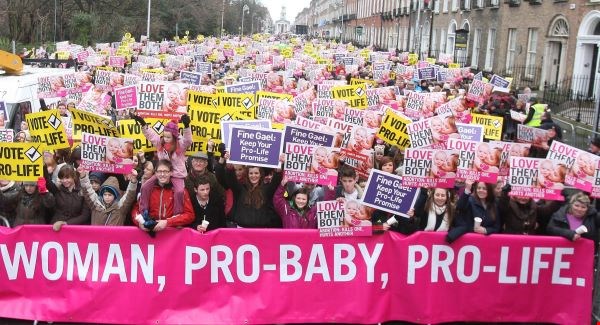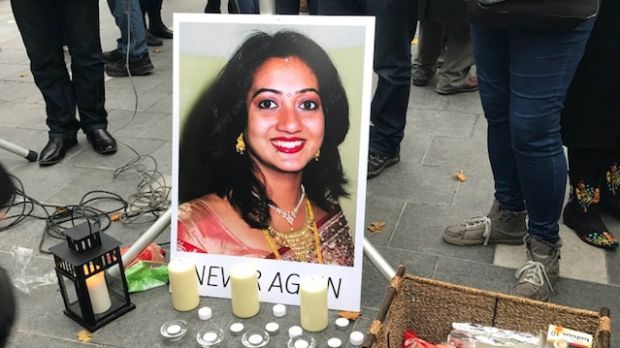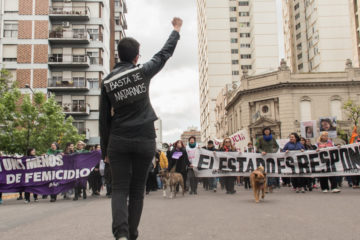The Irish Catholic Church’s “Special Position”
The complex reasons for the Irish Catholic Church’s prominent role in the lives of Ireland’s citizens have been much debated. Many see the Church as providing guidance after the devastation of the Famine, where one million (one-eighth of the population) died and another million were forced to emigrate. Ireland, including Northern Ireland, has never reached pre-Famine population figures, with the current population standing at 6.5 million. In the aftermath of violent conflicts on Irish soil (The Easter Rising, The War of Independence and The Civil War), the Church was seen as a symbol of hope and unity for its citizens.
Before independence, the Church was one of the few institutions that gave power to Irish Catholic Nationalists and thus post-independence, it was in one of the strongest positions to fill the vacuum of power that the British had left. Many see them as seizing the opportunity to increase their authority and influence for their own gains.
The Church played a crucial role in the creation of the 1937 constitution, which was based upon Papal encyclicals and was twice presented in draft form to the Vatican for critique and comment. The final constitution saw the State recognise the Catholic Church’s “special position” in society. This formal status was only removed from the constitution by a referendum in 1972. Whilst their power has waned considerably over the past 40 years, particularly after a succession of child exploitation scandals and cover-ups, they have still retained influence.
Eighth Amendment
The 1970s saw second-wave feminism succeed in liberalising abortion laws across Europe. The situation in Ireland was different. Access to contraception was banned until 1978, but the Church’s influence limited the extent of liberalisation. Contraception could be dispensed for bona fide “family planning or for adequate health reasons”, which essentially meant only for married couples. Controversially, only pharmacists could distribute contraceptives and only when presented with a valid prescription. Charles Haughey, the then Minister for Health and later Taoiseach (Prime Minister), said it was “an Irish solution to an Irish problem”. The phrase was ridiculed and came to mean an official response to a controversial problem which sidesteps the fundamental issue. At the time, Labour TD (MP) Noel Browne said what Haughey really meant was that it was “a Roman Catholic solution to an Irish problem”.

Shrewd ‘pro-life’ campaigners realised that the question of the legalisation of abortion might soon arise. PLAC (Pro-Life Amendment Campaign) secured campaign promises from the two main political parties, Fine Gael and Fianna Fail, that they would amend the constitution to ensure that abortion could not be introduced either by legislation or by the courts. Both parties were worried that they could be condemned from the pulpit (mass attendance across Ireland was as high as 80%), and lose votes if they took a liberal stance on abortion.
After the election, the government held a referendum on the issue and in 1983 the Eighth Amendment to the Constitution was carried by 66.9% to 33.1% of the valid poll, with a turnout of almost 54%. The final wording gave a “right to life of the unborn” that was “equal… to (the) life of the mother”. This left vast grey areas for maternity clinicians in treating pregnant people. Ultimately, the amendment led to a fatal tragedy.
The Preventable Death of Savita Halappanavar
On Sunday 21st October 2012, Savita Halappanavar presented at Galway University Hospital at 17 weeks gestation, complaining of back pain. The next day, her waters broke. Her medical notes recorded an “inevitable miscarriage”. She was informed of this and that she was at risk of infection. As someone with a medical background due to her career as a dentist, Halappanavar understood the situation and requested a termination. A foetal heartbeat was still detected so her consultant told her “in this country, it is not legal to terminate a pregnancy on the grounds of poor prognosis for a foetus”. A midwife also told her that a termination could not be obtained because Ireland is “a Catholic country”.
Earlier this month, the former Master of Holles Street Maternity Hospital who had reviewed Halappanavar’s notes “forensically” stated that “she died as a consequence of the Eighth Amendment”. He said that Ireland’s abortion legislation impacts upon the decision-making abilities of medical staff. This was an emphatic rejection of the role that religious ethics should play in medical decisions.
UCD: Pro-Church or Pro-choice?
The Church has also played a pivotal role in education in Ireland, and in UCD in particular. UCD was founded in 1854 with the aim to provide Irish Catholics with a higher-level education that would be established upon a Catholic ethos and which would allow the students to be taught by fellow Catholics. Since 1793 Catholics had been permitted to study in Trinity College Dublin, an Anglican University and Ireland’s oldest, but they were not allowed to become scholars or professors. After the establishment of UCD, Irish Bishops created a general ban on Catholics from studying at Trinity, which was in place until 1970. Thus in this atmosphere of religious tension, UCD became the traditional choice of Irish Catholics. It is now Ireland’s largest university, with a student population of 32,000.
Despite its history, UCD has, like the rest of Ireland, become increasingly secular in its outlook. In November 2016, UCD voted to have a pro-choice mandate following an abortion/neutrality referendum in anticipation of a referendum to repeal the Eighth Amendment in 2018. Thus it came as a surprise when Katie Ascough, a prominent ‘pro-life’ campaigner, was elected President of the SU, not least because she was the daughter of a director of the ultra-conservative and Catholic ‘Iona Institute’, which campaigned heavily against the marriage equality referendum in 2015. Whilst ‘Institute’ is a restricted term in the UK, it is not in Ireland. Graham Norton in 2014 said, “..the use of the word ‘institute’ is just a feeble attempt to give themselves a veneer of considered intellectual respectability.” Although Ascough had made numerous public appearances on Irish television and newspapers discussing her pro-life beliefs, she stated that she would respect the SU’s pro-choice mandate and act in accordance with it in her role. She added that she would “delegate” the Repeal campaign to UCD’s Welfare officers. The low turnout of 11% and student apathy towards student politics benefitted Ascough who was elected without reaching the quota.

Her campaign promise to not “compromise my relationship with the SU team or my role as President” was soon broken. Ascough’s unilateral decision to reprint the SU’s handbook Winging It, with certain information regarding abortion removed, caused a controversy that dominated the first weeks of UCD’s 2017-18 semester. She did so after she sought legal advice over the legality of the pages. The cost of reprinting the handbooks was €8000, far exceeding the maximum fine of €4000 for distributing such information. In recent years, every third-level institution in Ireland has printed information regarding access to abortion services and none have either been fined or given a criminal conviction.
Although Ascough left in the names and telephone numbers of Irish Family Planning Clinics, she removed the prices of terminations at different gestation periods that may be accessed abroad and also a paragraph detailing how to purchase abortion pills online. The cost of a termination for a pregnant person from Ireland in the UK ranges from £425 to £1395, not including the cost of travel and potentially overnight stays.
Given the apathy of the SU elections in March, there was a tremendous voter turnout of 27% which was the highest in recent years. Of the 6,572 voters, an overwhelming majority of 4,540 (69%) voted to impeach Ascough. Throughout the campaign, Ascough sought to make the narrative about freedom of speech and respect for the law. Whilst of course there should always be freedom of speech, this does not mean that there should be freedom from consequence. Ascough misappropriated funds to further her own religious agenda, after being elected on a promise to not let her personal, moral, religious beliefs infringe upon the pro-choice SU.
Hope for the Future
Although Ireland remains a predominantly Catholic country, on paper at least, the percentage of those identifying as Catholic in the 2016 Census sharply declined from 84.2 per cent in 2011 to 78.3 per cent. Simultaneously, there was an increase in those identifying as having no religion, from 6 per cent to just under 10 per cent.
Savita Halappanavar’s death shocked and disgusted many in Ireland. Since then, public support for legalisation of abortion has grown substantially. The success of personal stories that many LGBTQ people told in the run-up to the marriage referendum inspired generations of Irish women to tell their own abortion stories for the first time. Experiences that had once been shrouded in secrecy and shame became a very much public and open discussion for women with feelings of abandonment by their country. However, the public debate about abortion has become increasingly bitter. Those on the anti-choice side, sensing that public mood is changing, are vocal in denying the role of the Eighth Amendment in Halappanavar’s death. Fluffy campaigns such as “Love Both” claim that, although over 3,500 women every year are forced travel to the UK from Ireland for an abortion, over 100,000 lives have been saved because of the Eighth Amendment.
A referendum on the Eighth Amendment is due to take place in May or June next year. On 1st November 2017, a poll released by Amnesty International revealed that, of those in Ireland who have an opinion, a substantial majority (60%) think that women should have access to abortion on request, either within specific gestational limits or outright. The poll, taken between 16-19th October, shows that support is broadly consistent across all age groups, demographics, and regions. On Saturday 28th, 27 vigils were held across the country, New York City and London in honour of Savita Halappanavar where the headline used was ‘Never Again’.
Though the chains of the Catholic Church weigh heavy on Ireland’s history, let us hope that next year will bring the breaking of another link.



